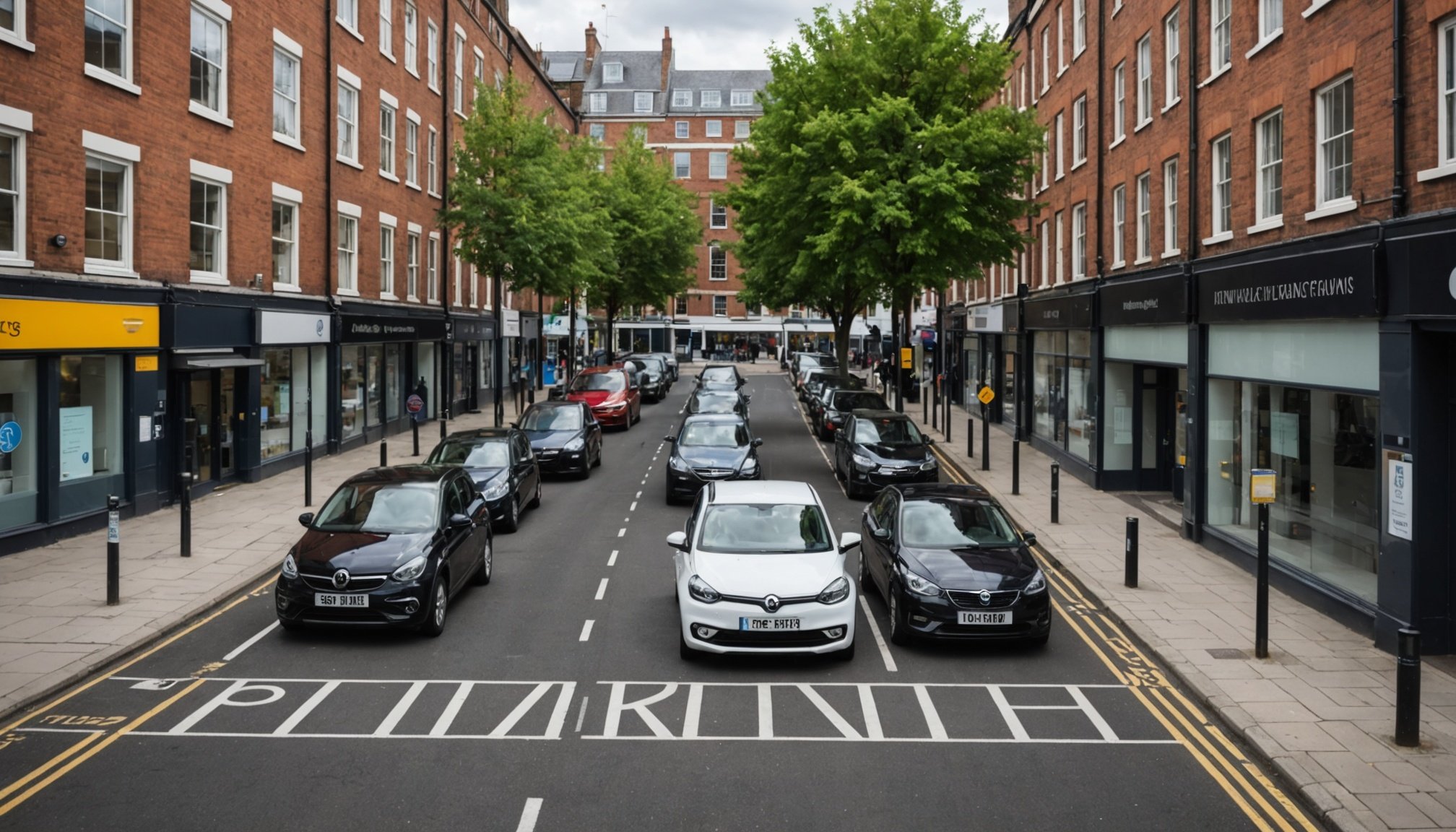Overview of Smart Parking Innovations
In today’s rapidly evolving urban environments, smart parking systems are instrumental in reshaping how cities manage traffic and parking challenges. Defined as systems that use advanced technology to improve the efficiency and user experience of parking in cities, they incorporate various innovations to address common issues tied to traditional parking methods.
UK cities are at the forefront of adopting these technologies, integrating features such as sensor networks that detect vacant spots and automated payment systems. This not only simplifies the parking process but also reduces traffic congestion, as drivers spend less time searching for spaces. In many urban environments, systems like mobile apps provide real-time data, enabling users to find and reserve parking spots effortlessly.
In parallel : Boosting stem passion among uk girls: innovative approaches to elevate educational engagement
The incorporation of smart parking innovations is not just a matter of convenience but a strategic effort in urban planning. By streamlining operations and improving efficiency, these systems contribute significantly to the sustainability and functionality of urban areas. Moreover, they help policymakers optimize land use, reduce carbon footprints, and improve overall transportation efficiency.
As such, embracing technology in urban environments continues to be pivotal for enhancing city life, directly addressing the delicate balance between capacity and demand that many urban areas grapple with daily.
Also to discover : Transforming urban mobility: exploring the benefits of smart transportation technologies in uk cities
Case Studies of Smart Parking in UK Cities
Exploring smart parking solutions in UK cities reveals a pioneering shift towards efficient urban management. Let’s dive into London, Manchester, and Bristol’s case studies to see how they harness technology and tackle parking challenges.
London: Pioneering Smart Parking Solutions
London’s smart parking initiatives aim to mitigate congestion and slickly manage urban traffic flow. Implementations such as sensor-equipped parking spaces not only provide real-time availability updates but also cut down search times and reduce emissions. Metrics reflecting these successes include a notable 20% decrease in time spent finding parking spots.
Challenges such as integrating systems citywide presented technical and financial hurdles. Lessons learned highlight the importance of robust infrastructure and continuous stakeholder engagement.
Manchester: Integrating Smart Technologies into Urban Planning
Manchester is making strides by embedding smart parking within its urban planning. These strategies connect parking availability with public transport options, enhancing the user experience and encouraging sustainable travel patterns. Businesses report increased footfall as parking becomes more predictable, translating into economic boosts.
Future developments focus on expanding sensor coverage and enhancing data analytics capabilities, fostering a seamless urban experience.
Bristol: Sustainable Smart Parking Approaches
Bristol’s embrace of eco-friendly smart parking initiatives places sustainability at the forefront. Solar-powered parking meters and electric vehicle charging stations showcase their commitment. Efficiency improvements, supported by statistical evidence, include better utilisation of parking spaces and reduced carbon footprints.
Feedback from local residents praises the convenience and environmental benefits, viewing them as progressive steps towards a greener city.
Efficiency Gains from Smart Parking Innovations
In the hustle and bustle of modern urban areas, efficiency improvements through advanced parking management systems are revolutionizing urban mobility. Imagine a city where searching for a parking spot is no longer a time-consuming nightmare. This not only saves valuable time but also significantly reduces traffic congestion. According to recent studies, smart parking solutions can decrease vehicle time in search of parking by up to 30%, leading to faster travel times and improved daily life.
The economic ripple effects are far-reaching. For local businesses, efficient parking management systems mean increased customer engagement as patrons spend less time hunting for parking. Urban mobility benefits extend to municipalities too, with reduced congestion resulting in fewer infrastructure costs and better traffic flow. The boost in consumer activity could potentially lead to increased local revenue and a more vibrant community.
Environmental sustainability also gains momentum through these innovations. Reduced emissions from idling vehicles contribute to a greener environment, aligning with global efforts to combat climate change. Furthermore, smarter parking systems often integrate renewable energy sources, showcasing a commitment to sustainable urban development. These innovations highlight the tangible benefits of adopting advanced technologies to streamline operations, demonstrating that the future of urban mobility is not only about moving faster but also moving smarter.
Economic and Environmental Impacts
Investing in smart parking solutions can yield significant economic benefits. Financial analysis shows a favourable return on investment (ROI) for cities opting for these technologies. By reducing the need for extensive parking structures and optimising existing space, municipalities can save on construction and maintenance costs. These savings can be redirected to other community projects, enhancing urban development.
Moreover, the implementation of smart parking contributes to environmental sustainability. By reducing the time drivers spend searching for available parking, there is a notable decrease in fuel consumption and emissions. This decline in vehicle emissions positively affects air quality, thus improving public health. Cleaner air reduces the incidence of respiratory diseases, which in turn can lower healthcare costs for communities.
The long-term community impacts go beyond economic and environmental benefits. Urban residents enjoy a higher quality of life with reduced traffic congestion and better air quality. Businesses can also thrive as more accessible parking options encourage consumer visits. Smart parking enhances the overall urban experience, making cities more attractive for both residents and visitors. Embracing these innovative solutions promises a more sustainable and economically vibrant urban future.
Future Trends in Smart Parking Technologies
As cities continue to evolve, urban mobility innovations stand at the forefront of smart city solutions. Technologies in the parking domain are no exception, with future technology trends driving significant transformation.
One key prediction is the increased integration of Artificial Intelligence (AI) and the Internet of Things (IoT) in smart parking ecosystems. These technologies promise to revolutionise urban mobility, offering smarter and more efficient ways to manage parking spaces. With AI-driven analytics, cities can predict parking demands, optimising space usage and reducing traffic congestion. Similarly, IoT-enabled devices can provide real-time updates on parking availability, guiding drivers to open spots more swiftly.
However, the adoption of these innovations isn’t without its hurdles. Potential challenges include ensuring data privacy, creating interoperable systems among different urban infrastructure, and managing the costs of implementation. Cities will need to devise strategies that balance technological advancement with ethical and economic considerations. One such strategy could be to encourage private-public partnerships to share the financial and logistical load efficiently.
The rapid evolution indicates that smart parking technologies are an integral part of smart city solutions, promising to enhance both urban mobility and quality of life. As cities embrace these trends, residents can look forward to a future with less congestion and improved urban efficiencies.
Implementation Strategies for Urban Planners
Implementing smart parking solutions in urban areas requires careful consideration and a structured approach. Urban planners should establish a comprehensive framework that guides the adoption of these technologies. This framework should begin with a thorough assessment of current infrastructure and the identification of specific needs and challenges within the urban environment.
Key stakeholders play pivotal roles in the successful implementation of smart parking systems. These stakeholders include city officials, technology providers, local businesses, and citizens. Each has unique contributions:
- City officials: Develop regulations and allocate resources.
- Technology providers: Supply and maintain hardware and software.
- Local businesses: Support as partners and beneficiaries.
- Citizens: Contribute input and utilize the system.
Policy recommendations are crucial to ensure the effective deployment and operation of smart parking solutions. Planners should encourage policies that promote collaboration between stakeholders, ensure funding and resources are available, and establish standards for data sharing and privacy. Additionally, creating incentive structures for businesses that incorporate or support smart parking can enhance widespread adoption.
By employing comprehensive urban planner strategies and engaging all relevant stakeholders, cities can efficiently embrace smart parking technology, leading to improved traffic management and enhanced urban living conditions.











